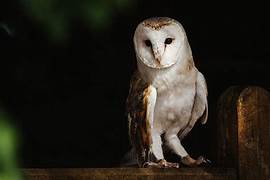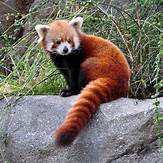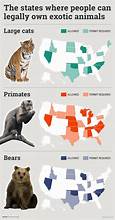Do Owls Make Good Pets?
Owls are captivating and majestic creatures, often admired for their piercing eyes, nocturnal habits, and silent flight. While they may seem like fascinating potential pets, it's crucial to delve into the realities of owl ownership before making a commitment. This article explores the suitability of owls as domestic companions, considering their unique needs, legal implications, and potential challenges.

Understanding Owls' Wild Nature
Owls are inherently wild animals with specialized adaptations that enable their survival in their natural habitats. They are solitary creatures that thrive in the undisturbed wilderness, relying on their keen senses and hunting skills to survive.
Keeping an owl as a pet disrupts this natural order, depriving it of its freedom, space, and opportunity to fulfill its wild instincts. Owls require vast territories and specific environmental conditions to hunt, roost, and reproduce. Confining them to a human-controlled environment can lead to stress, frustration, and behavioral issues.
Legal and Ethical Concerns
In many regions, it is illegal to keep owls as pets due to their protected status as wild birds. Obtaining permits and licenses to possess an owl can be a complex and time-consuming process, often requiring specialized knowledge and facilities. Even where legal, the ethical implications of depriving an owl of its natural freedom remain a significant consideration.
Furthermore, the trade in wild owls for the pet industry poses serious conservation concerns. The capture and removal of owls from their natural populations can disrupt ecosystems and contribute to the decline of these magnificent birds.
Challenges of Owl Care
Owls have specialized dietary needs that can be challenging to meet in captivity. They require a diet consisting primarily of live prey, such as rodents, insects, and small birds. This can be expensive, time-consuming, and ethically questionable, as it involves sacrificing the lives of other animals.
Owls are also nocturnal creatures, meaning they are most active at night. This can disrupt the sleep patterns of their human companions and lead to difficulties in bonding and interaction.
Additionally, owls have sharp talons and beaks, which can inflict serious injuries if they feel threatened or distressed. Their powerful wings and unpredictable flight patterns can also pose safety risks, especially in confined spaces.
Alternatives to Owl Ownership
If you are captivated by owls and their majestic presence, there are alternative ways to appreciate these birds without owning one as a pet.
Visiting wildlife sanctuaries, nature reserves, or birdwatching spots can provide opportunities to observe owls in their natural habitats. You can also support owl conservation efforts by donating to organizations dedicated to protecting these birds and their ecosystems.
Additionally, you can enjoy owl-related activities such as photography, sketching, or learning about their behavior and biology. These pursuits can offer a fulfilling and ethical way to appreciate owls without disrupting their wild lives.
Conclusion
Owls are magnificent creatures that deserve to live free in their natural habitats. While they may appear captivating and intriguing, they are not suitable as pets due to their wild nature, specialized needs, legal implications, and ethical concerns. Instead of attempting to domesticate these remarkable birds, we should appreciate them in their wild environments and support efforts to protect their populations.
Declaration: All article resources on this website, unless otherwise specified or labeled, are collected from online resources. If the content on this website infringes on the legitimate rights and interests of the original author, you can contact this website to delete it.





